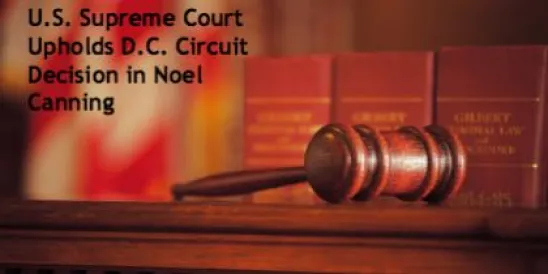The US Court of Appeals for the District of Columbia Circuit preserved discovery options for copyright owners fighting online piracy when it reversed the district court’s refusal to allow a subpoena of an alleged online infringer’s internet service provider. The DC Circuit found that the district court abused its discretion by relying heavily on the copyright owner’s litigation history and the nature of its films rather than the relevant legal standards under the Federal Rules of Civil Procedure. Strike 3 Holdings, LLC v. John Doe, Subscriber Assigned IP Address 73.180.154.14 (DC Cir. July 14, 2020) (Rao, J.).
Strike 3 is a producer and online distributor of adult films. Like most of its industry peers, the company faces significant online piracy that is often facilitated by peer-to-peer file sharing. To combat this infringement, Strike 3 regularly files copyright infringement lawsuits against “John Doe” defendants based on the internet protocol (IP) address (and the associated physical address) tied to an online infringer’s illegal file sharing and downloads.
In 2018, Strike 3 filed a copyright infringement lawsuit against the IP address 73.180.154.14 John Doe subscriber located in the District of Columbia after the IP address was associated with 22 instances of infringement in the course of one year. To properly identify the defendant and serve the complaint, Strike 3 also filed a Rule 26(d)(1) motion seeking leave to subpoena Comcast, the subscriber’s internet service provider, for records identifying the John Doe IP address subscriber. But, in applying a multifactor balancing test adopted by the US Court of Appeals for the Second Circuit in Arista Records v. Doe, the district court denied Strike 3’s discovery motion on grounds that Strike 3’s need for the subpoenaed information was outweighed by defendant’s right to be anonymous, which the court found to be notably relevant given the risk of defendant misidentification and the “particularly prurient pornography” at issue.
On appeal, the DC Circuit acknowledged the district court’s broad discretion over the structure, timing and scope of discovery. In Strike 3’s case, however, the DC Circuit found that three aspects of the lower court’s analysis were an abuse of this broad discretion.
First, it was improper and “not supported by the relevant legal standards” for the district court to treat the pornographic content of Strike 3’s copyrighted works as relevant to its entitlement to early discovery. None of the supporting case law suggests that a potentially non-infringing defendant’s privacy interests vary depending on the content of the copyrighted work at issue. The Court warned that a plaintiff’s ability to defend its copyrights cannot turn on a court’s subjective view of the copyrighted material, and held that the content of a copyrighted work is per se irrelevant to a Rule 26(d)(1) motion seeking discovery to identify an anonymous infringer.
The district court’s second abuse of discretion was in its conclusion that, even if the discovery request was granted, Strike 3 could not “identify a copyright infringer who can be sued” for purposes of stating a plausible claim against the IP subscriber. The DC Circuit clarified that this stage of discovery does not require a court to pass judgment on the strength of the plaintiff’s allegations against the defendant, but to determine whether the plaintiff should have the opportunity to name the defendant in the first place. The “mere possibility that an unnamed defendant may defeat a complaint at a later stage is not a legitimate basis to deny a Rule 26(d)(1) motion that otherwise satisfies Rule 26’s discovery standards.”
Finally, the DC Circuit found that the lower court drew unsupported negative inferences against Strike 3 regarding its litigation tactics and motivation in seeking the requested discovery, especially in the face of the district court’s duty to assume the truth of Strike 3’s factual allegations and draw all reasonable inferences in its favor. The Court observed that the district court went outside the record in reviewing Strike 3’s other copyright infringement lawsuits to conclude that Strike 3 was a “copyright troll” engaged in “coercive litigation” tactics, and stated that the factual record in the case at hand did not support the negative inferences drawn against the plaintiff.
In finding such abuse of discretion, the DC Circuit reversed the denial of Strike 3’s Rule 26(d)(1) motion. Consequently, the dismissal of Strike 3’s complaint for failure to state a claim, which was “predicated entirely on” the district court’s denial of the discovery motion, was also reversed and remanded.




 />i
/>i

